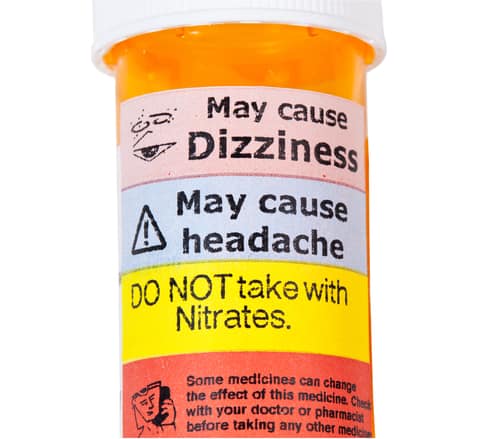
The U.S. Food and Drug Administration (FDA) has proposed a rule amending regulations governing generic drug labeling that, if approved and implemented, would significantly alter potential liability of brand-name and generic drug manufacturers. The rule would significantly change the drug-labeling process and the duties and responsibilities of generic drug manufacturers, Law.com reports. The new rule’s […]
 The U.S. Food and Drug Administration (FDA) has proposed a rule amending regulations governing generic drug labeling that, if approved and implemented, would significantly alter potential liability of brand-name and generic drug manufacturers.
The U.S. Food and Drug Administration (FDA) has proposed a rule amending regulations governing generic drug labeling that, if approved and implemented, would significantly alter potential liability of brand-name and generic drug manufacturers.
The rule would significantly change the drug-labeling process and the duties and responsibilities of generic drug manufacturers, Law.com reports. The new rule’s purpose is to advance the obligation of all drug application holders to make available to physicians and consumers the most recent safety information relating to their drugs. Because current FDA regulations makes it impossible for the generic drug manufacturers to revise the warning label without violating federal law, the Supreme Court held that state failure-to-warn claims against generic drug manufacturers are preempted by the federal Food, Drug and Cosmetic Act (FDCA).
New drug approval requires the manufacturer to submit a new drug application (NDA) to the FDA, which includes a proposed label. Once the NDA is approved, the brand-name drug manufacturer has the exclusive right to sell the drug for a specified period of time before other manufacturers may enter the market with generic versions.
The Drug Price Competition and Patent Term Restoration Act (known as the Hatch-Waxman Act) streamlined the approval process for generic drug manufacturers by allowing them to submit an abbreviated version of the NDA (ANDA). But generic drug manufacturer must demonstrate that “the labeling proposed for the drug is the same as the labeling approved for the listed drug,” according to Law.com. The new FDA rule would create “parity” between brand-name and generic drug manufacturers with respect to certain safety-related labeling changes, requiring the holder of an ANDA to revise or update its generic drug label unilaterally immediately upon discovery of new risks or the recognition of the need for additional safety information for a drug on the market.
With the new rule, generic manufacturers would lose the protections of federal preemption against state-law claims of failure to warn. In states like New Jersey, consumers who are injured as a result of a defective warning label on a generic drug would have legal recourse that the current FDA regulations and tort laws do not provide. If the rule is finalized and adopted as proposed, it is likely that generic drug manufacturers will challenge the FDA’s rule-making authority, Law.com reports.


